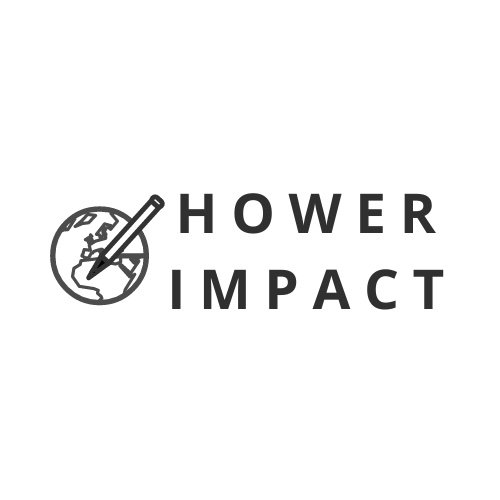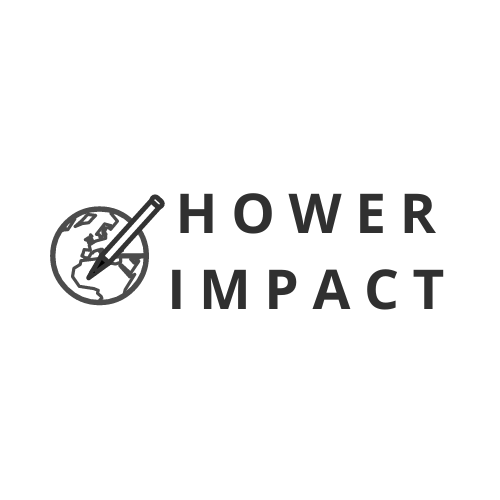I first discovered my “impact personal legend” in 2011 on a tiny, sun-kissed island off the Caribbean Coast of Panama.
In Paulo Coehlo’s novel, The Alchemist, he describes a "personal legend" as an individual’s calling — that which awakens a deep desire and passion to live with a sense of purpose for something greater than yourself.
Having graduated in 2009 at the height of the Great Recession, I was one of the fortunate few recent graduates to find a reliable nine-to-five job — at a public relations agency in San Francisco — and found myself feeling grateful yet dissatisfied. While I needed something more than what my cubicle could provide, I had little idea of what that was beyond “make a difference in the world” and “be a writer.” After digesting Coehlo’s book during an unremarkable lunch break, I knew that the only way I would discover my personal legend was to leave behind the familiar path in pursuit of my purpose. With a clear mind and open heart, the universe has a way of presenting us with exactly what we need when we least expect.
A chance encounter at a friend’s house led to my learning of Harvard University’s WorldTeach program, which afforded me the opportunity to spend a year volunteering in South America helping communities in need.
Discovering my purpose in Colombia
After much deliberation — and perhaps one or two freak outs — I decided to quit my job and board a plane to Bogotá, Colombia with an abundance of good intentions and a paucity of global experience.
While at the time I didn’t even know that corporate sustainability was a “thing” beyond the clean energy companies I worked with at my public relations gig, I found myself unwittingly on the front lines of a corporate sustainability initiative of IBM. The technology company had partnered with WorldTeach to increase computer literacy in hopes of improving learning outcomes in Colombian classrooms. Throughout this experience, I saw how even well-intentioned corporate sustainability efforts can fail when they clash with the realities of complex, systemic social problems.
I like to think that my time there made some kind of a positive difference in the lives of the children I taught — though it was difficult for me to see it. If anything, the experience taught me to be humble about my ambitions for impact and that I nor anyone can single-handedly solve complicated social and environmental challenges.
Living in Colombia’s sprawling capital also became a crash course in sustainable development. I witnessed how immense inequality compounded both social and environmental problems. But I also saw some wonderful sustainability solutions at work: Bogotá’s rapid bus transit system TransMilenio helped address the city’s air pollution problems while enabling all Bogotanos to navigate the city for work and play; the city’s closure of major thoroughfares on Sundays so that people could walk, bike, and otherwise congregate on the normally car-dominated streets; and limiting the days of the week during which people could drive their cars to reduce congestion and air pollution.
Toward the end of my year in South America, I took a break by exploring nearby Panama — which brings me back to that tiny island in the Caribbean. Walking with a local guide through a bustling Guna village on the San Blas Archipelago, I learned that the islands’ inhabitants were in danger of becoming climate refugees. In 2011, climate still seemed like a distant specter more than a clear and present crisis, and witnessing first hand the social impacts of the environmental crisis changed my perspective forever. Realizing that the climate crisis was already here and hurting those the least culpable for warming the world, my year-long search in Latin America for a personal and professional purpose was over. I had discovered my ESG personal legend: to use the power of the pen — as well as speaking, advocating, partnering, strategizing and every other skill I can cultivate — to help people like the Guna by mitigating the climate crisis. Shortly after returning home to the United States, I discovered corporate sustainability as a career path.
A decade of ESG work
Over the past decade, my ESG personal legend has kept me focused and motivated through every success and setback. I have leveraged my writing skills as a journalist for publications like GreenBiz and Sustainable Brands to educate and (hopefully) inspire business and policy action on the climate crisis and other social and environmental issues. I have partnered with companies like The North Face to launch initiatives aimed at protecting America’s public lands from oil exploration; worked with utilities such as Pacific Gas & Electric to implement finance initiatives to help low-income homeowners in California switch to solar; led communications at an energy startup focused on decarbonizing the built environment; dabbled in academia studying climate policy and communication at George Washington University in Washington D.C.; lobbied for pro-climate policies on Capitol Hill with the Environmental Defense Fund; traveled to the slums of Nairobi, Kenya to evaluate governance challenges and write about local solutions; and worked with Fortune 500 companies to advance ESG strategy, reporting and communication.
Despite my efforts, the planet continues to warm. The Guna villages continue to be threatened by swallowing seas. I have failed a lot, but learned even more. Now, more than ever, we face a difficult road to a prosperous future — and each day we fail to act steepens our slope. Success in reaching our destination is far from certain, but failure also isn’t an option. The stakes simply are too high.
None of us will get there alone. You can’t save the world — neither can I — but together, we might just pull it off.
In 2023, I summited Kilimanjaro and reflected on the need for continued climate action.


